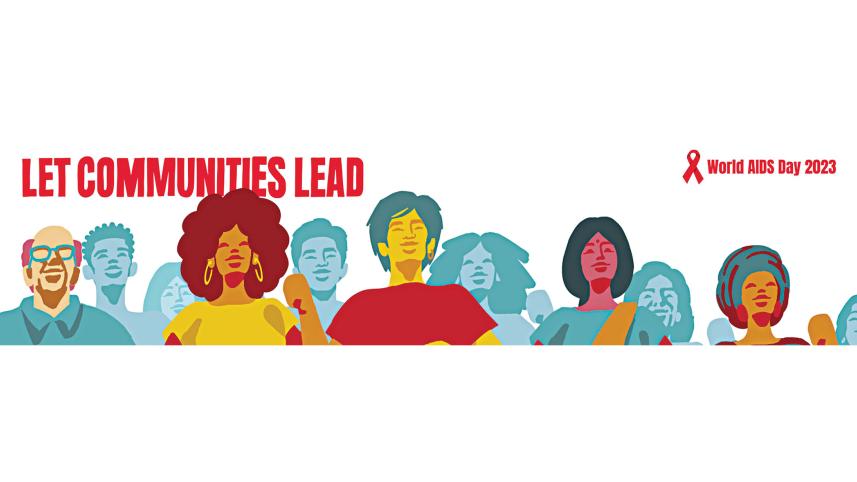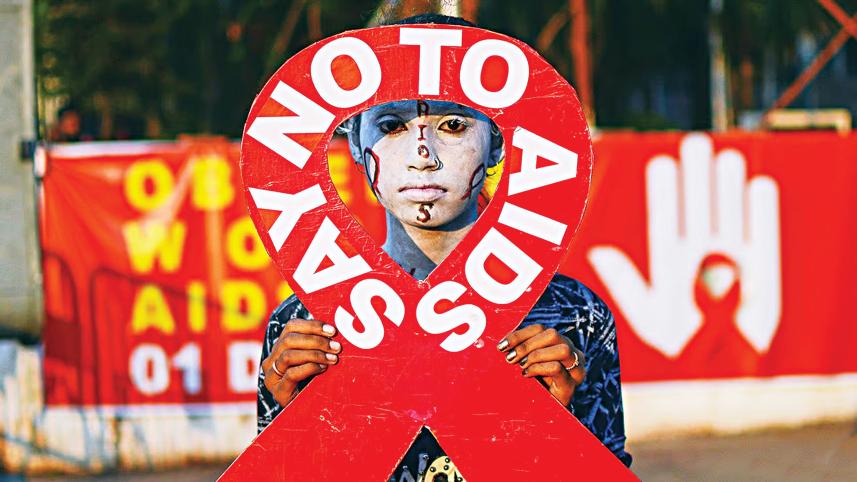Let communities lead in the fight against HIV/AIDS

This World AIDS Day transcends a mere celebration of past achievements; it serves as a resounding call to action, urging the empowerment and support of communities in their pivotal leadership roles. The theme of World AIDS Day 2023, 'Let communities lead,' resonates deeply, emphasising the criticality of community involvement in all facets of HIV plans and programmes.
Community leadership is not merely a recommendation but a foundational aspect that should permeate the formulation, budgeting, implementation, monitoring, and evaluation of HIV plans. The rallying cry, "Nothing about us without us," underscores the necessity of authentic community involvement.
Moreover, robust funding, reliable support, and equitable remuneration are imperative to unleashing the full potential of community leadership. As the UNAIDS Global AIDS Update highlights, countries placing people and communities at the forefront of their policies and programmes exhibit leadership in the global HIV response.

Yet, despite their significance, community-driven efforts remain underutilised and underfunded on a global scale. Shockingly, globally 9.2 million individuals living with HIV are unable to access life-saving treatment, resulting in 630,000 AIDS-related deaths in 2022. Central, eastern, western, and southern Africa, which harbour 65% of all people living with HIV, continue to be the most affected regions.
This crisis stems from a lack of community-focused HIV prevention services, inadequate funding, and the absence of innovative approaches for marginalised populations. Additionally, punitive laws and discrimination act as barriers to effective community-driven initiatives.
The efficacy of community-first approaches cannot be understated. Models like community-led monitoring, community-based participatory research, and community advocacy serve as pillars of empowerment. These approaches not only empower communities but also yield tangible improvements in service accessibility, acceptability, affordability, and quality.
World AIDS Day itself, observed annually on December 1st, stands as a cornerstone in the global fight against HIV/AIDS. It unites people worldwide to raise awareness, demonstrate solidarity, and reflect on the progress made and the challenges that persist. This year's theme, 'Let communities lead,' underscores the pivotal role of communities in shaping the HIV response, aligning with the overarching objective of ending AIDS by 2030.
Health workers, government bodies, civil society, community leaders, and HIV programme managers all play vital roles in this fight. Advocating for access to essential HIV services, allocating resources, combating stigma, and empowering frontline health workers are just a few aspects of their concerted efforts towards an AIDS-free world. In conclusion, World AIDS Day 2023 serves as a poignant reminder that the journey towards an AIDS-free future demands collective commitment, unwavering dedication, and comprehensive community involvement. It's a call to champion community-first approaches, fostering an environment where every individual impacted by HIV/AIDS is empowered, supported, and given the opportunity to thrive. Together, let us reinforce our resolve to ensure that no one is left behind in this global endeavour.



 For all latest news, follow The Daily Star's Google News channel.
For all latest news, follow The Daily Star's Google News channel.
Comments